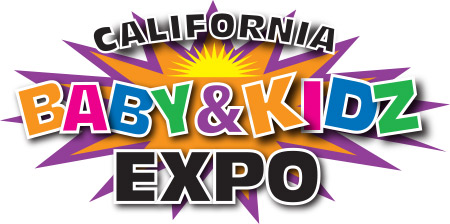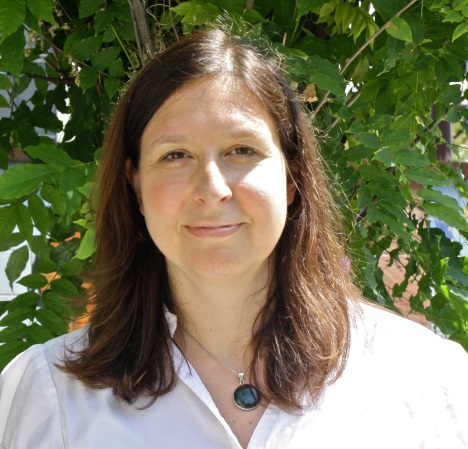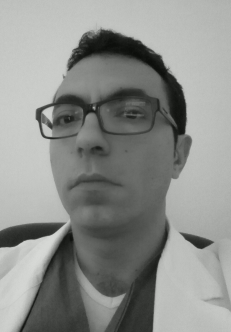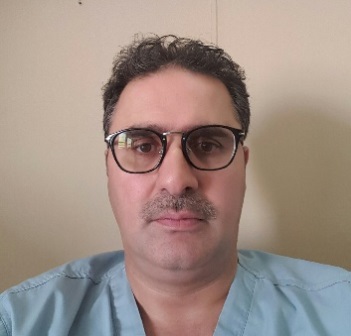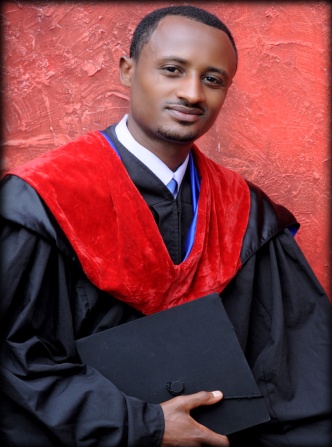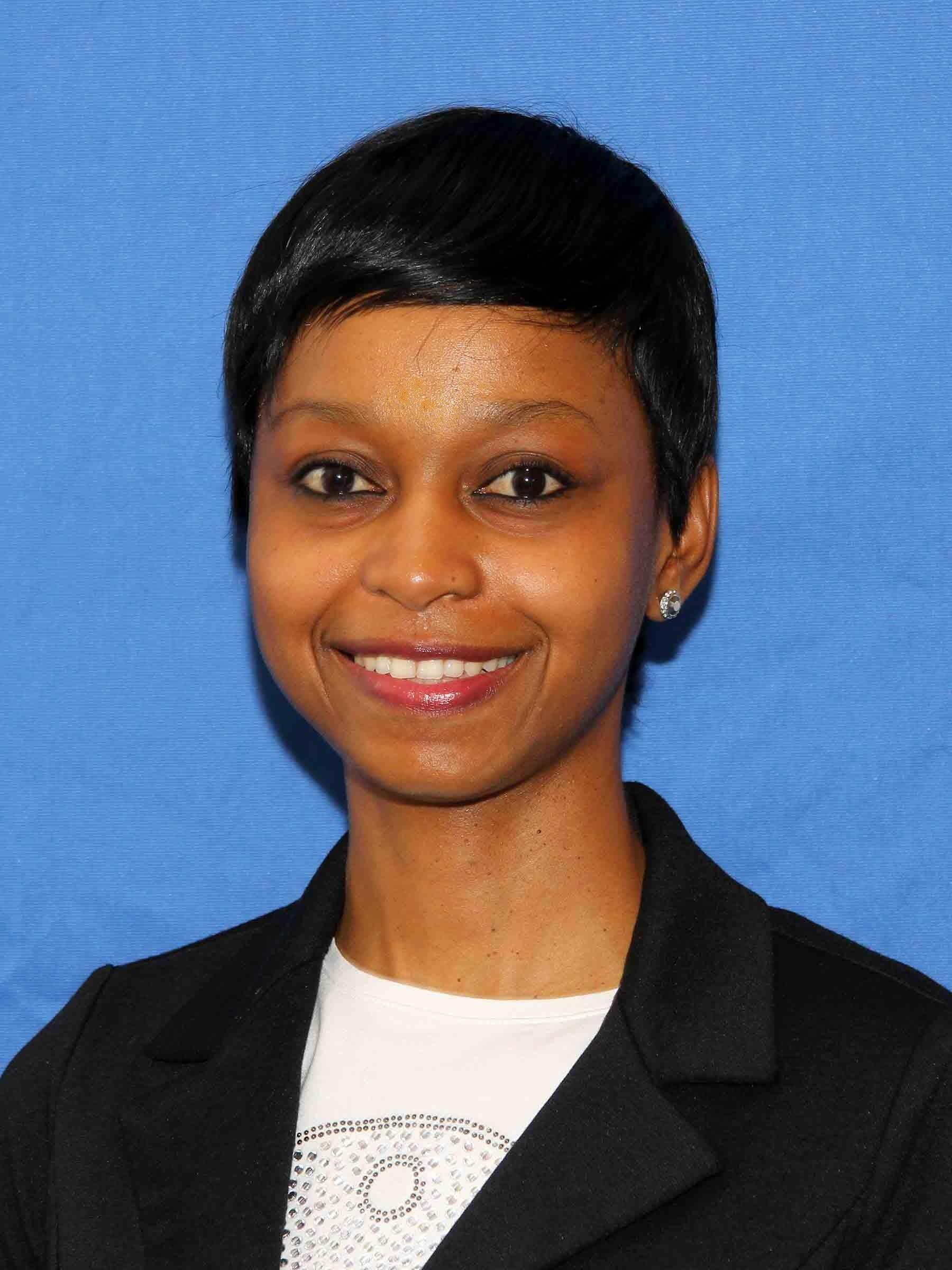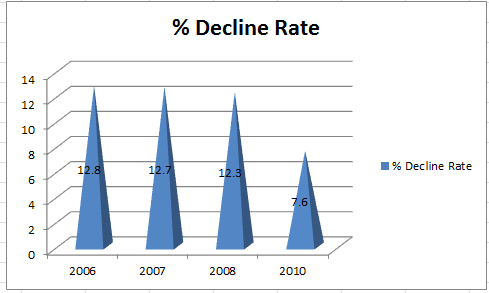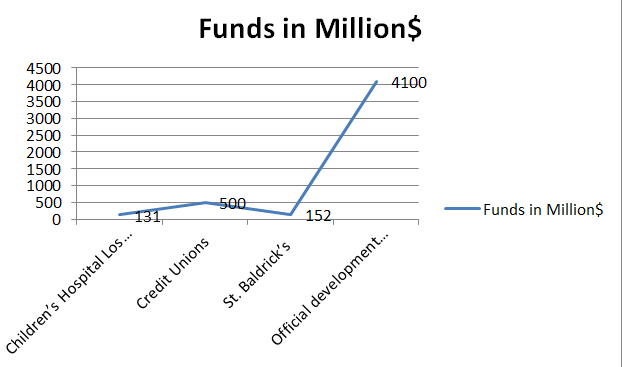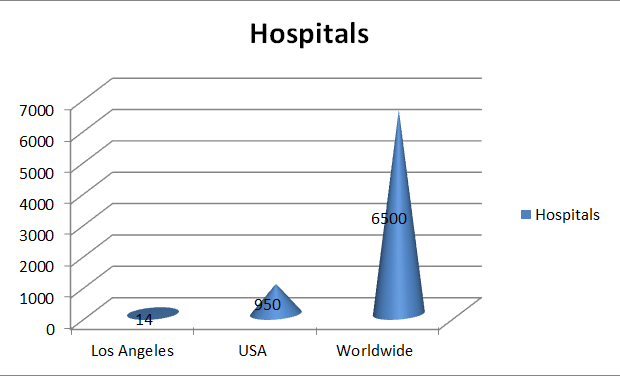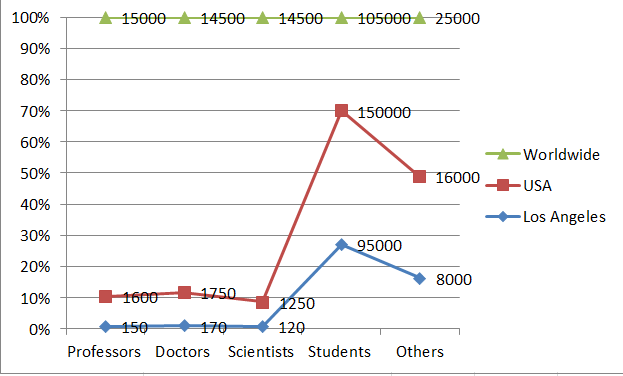Renowned Speakers
We’ve invited the top most influential speakers from around the world to give inspirational talks and lead practical workshops.
Conference Information
About us
Pulsus Group. is an internationally renowned peer-review publisher in scientific, technical, and medical journals established in the year 1984 with offices in Singapore, Ontario, Canada and Hyderabad, India has acquired Andrew John Publishing and openaccessjournals.com to expand its Open Access Publishing through its 50+ journals in association with 20+ International medical and scientific societies.
Pulsus through its cmesociety.com is been very instrumental to provide an invaluable channel for scientists and researchers to exchange ideas and research by creating a forum for discussing the possibilities of future collaborations between universities, institutions, research bodies and organizations from different countries through international CME/CPD accredited conferences and meetings.
Sessions
Track 1: Neonatology: Neonatology is a restorative claim to fame which incorporates dealing with the new conceived babies. It is essential that the premature children are should have been taken in an emergency unit. This is not on the grounds that they are truly wiped out but rather that as their organs are not completely created it can prompt to host issues that require master intercessions. The specialists required in this treatment are called Neonatologists.
Track 2: Maternal Healthcare: Nourishment assumes an imperative part particularly in the main couple of weeks after the labor. Bosom Feeding has essential fixings that manufacture the infant's invulnerable framework. Neonatal sustenance is imperative for the development and improvement of the infants. When all is said in done, children ought to be at least 4 pounds before they are prepared to leave the hatchery.
Track 3: Birth complications: Birth deformities might be the consequence of hereditary or ecological variables. This incorporates mistakes of morphogenesis, disease, epigenetic changes on a parental germ line, or a chromosomal irregularity. The result of the turmoil will rely on upon complex associations between the pre-natal shortage and the post-natal environment. Creature ponders show that the mother's (and likely the father's) eating regimen, vitamin admission, and glucose levels before ovulation and origination have long haul consequences for fetal development and juvenile and grown-up malady. Creature ponders have demonstrated that fatherly exposures preceding origination and amid pregnancy result in expanded danger of certain birth deformities and tumors.
Track 4: Genetic in children: Hereditary qualities are only a care gave to newborn, children, or adolescents. The genetics care which is given by management, diagnosis and treatment of all types of pediatrics heredity issue and birth defects.
Track 5: Pediatric Oncology: A child or teen has a blood disease or cancer, a pediatric hematologist/oncologist has the experience and qualifications to evaluate and treat your child or teen. The interesting way of care of youngsters or adolescents with blood illnesses and growth is found out from advanced training and experience in practice. Pediatric hematologists/oncologists treat children and teens from birth through young adulthood.
Track 6: Neonatal Nursing: Neonatal nursing is a subspecialty of nursing that works with newborn infants born with a variety of problems ranging from prematurity, birth defects, infection, cardiac malformations, and surgical problems. Neonatal nursing generally encompasses care for those infants who experience problems shortly after birth. A few neonatal nurses may care for infants up to about 2 years of age. The neonatal period is defined as the first month of life; however, these newborns are often sick for months. Most neonatal nurses care for infants from the time of birth until they are discharged from the hospital.
Track 7: Maternal & Child Nutrition: Pediatric nutrition is the maintenance of a proper well-balanced diet consisting of the essential nutrients and the adequate caloric intake necessary to promote growth and sustain the physiologic requirements at the various stages of a child's development. Pediatric nutritional needs vary considerably with age, level of activity, and environmental conditions and they are directly related to the rate of growth. Breast Feeding has important ingredients that are not found in any infant formula, to build the baby’s immune system. Pediatric nutrition must consist of essential Vitamins and Minerals which help for the growth and development. Proteins are the basic units required mainly for the construction of the body muscles and in all the metabolic activities of the body. To increase the calcium levels intake of dairy products are needed.
Track 8: Pediatric Ophthalmology: Pediatric ophthalmologist is a specialist in medical and surgical eye problems. So ophthalmologists perform operations on eyes, they are both surgical and medical specialists. A multitude of diseases and conditions can be diagnosed from the eye.
Track 9: Neonatal Pulmonology: A child has breathing problems, or a problem with his or her lungs, a pediatric pulmonologist has the experience and qualifications to treat your child. Pediatric pulmonologists diagnose, treat, and manage children from birth. Pulmonary medicine is a subspecialty of internal medicine that focuses on the prevention, diagnosis, and treatment of conditions that affect the lungs and respiratory tract. Here are some of the most common conditions that our pulmonologists diagnose and treat Asthma.
Track 10: Pediatric and Adolescent Gynecology: The Division of Pediatric and Adolescent Gynecology provides medical and surgical management of gynecologic problems in newborns to patients up to 26 years old. Some of the routine and specialized pediatric and adolescent gynecologic issues we treat include: Menstrual disorders, menstrual management and gynecologic concerns in girls with special needs, vulvo vaginal issues in pre-pubertal and pubertal girls etc.
Track 11: Pediatric Allergy and Infectious: Anti-infection agents can be viable medicines for neonatal diseases, particularly when the pathogen is immediately distinguished. Rather than depending exclusively on refined strategies, pathogen distinguishing proof has enhanced generously with propelling innovation; in any case, neonate mortality has not kept pace and stays 20% to half. While preterm neonates are at an especially high hazard, full term and post-term newborn children can likewise create disease.
Track 12: Fetal Cardiology: The heart is the first organ to develop in your unborn baby, and is the most important to his or her lifetime of health. Fetal Cardiology program works to support child’s heart health, or preparing your child for life-changing treatment. The most advanced technology to monitor developing baby—including fetal echocardiograms and fetal MRIs for evaluation—which reduces risk while minimizing time spent in the hospital. Our conference will give you more details information about fetal cardiovascular physiology, Fetal Bradyarrhythmia’s & Tachyarrhythmia’s and many more.
Track 13: Pediatric Endocrinology: Neonatal endocrinology is a medical subspecialty dealing with disorders of the endocrine glands, such as variations of physical growth and sexual development in childhood. The most common problem is growth disorders, especially those amenable to growth hormone treatment. Pediatric endocrinologists are, physicians involved in the medical care of infants and children with endocrine glands disorders.
Track 14: Pediatric Gastroenterology & Hepatology: Pediatric Gastroenterologists and Hepatologists provide care for children with disorders of the esophagus, stomach, intestines, liver and pancreas. Pediatric Gastroenterology & Hepatology is dealing with evaluation and treatment of gastrointestinal, liver and nutritional disorders.
Track 15: Pediatric Nephrology & Urology: Pediatric Nephrology is dealing with a wide range of children’s kidney problems. Pediatric Nephrologists are specialist to treat hypertension (high blood pressure) and multi-disciplinary renal disorders.
Track 16: Neonatal Anesthesia: The newborn time period is defined as the first 24 hours after birth, and the neonatal is the first 30 days. The most critical period of time in a neonate’s life is first 24-72 hours.
Anesthesia-related morbidity and mortality is higher in infants than adults, as well as in younger compared to older children. Airway complications are more likely in very young infants. The anaesthetic considerations in neonatal surgical emergencies are based on the physiological immaturity of body systems, poor tolerance of the anaesthetic drugs, associated congenital disorders etc. Anesthesia-related dismalness and mortality is higher in babies than grown-ups, and in more youthful contrasted with more established kids. Specifically, aviation route entanglements are more probable in extremely youthful newborn children. Basic occasions are most astounding in newborn children < 2 kg [Tay et. al. Paediatr Anaesth 11: 711, 2001]. The infant time frame is characterized as the initial 24 hours after birth, and the neonatal period is characterized as the initial 30 days. The most basic timeframe in a neonate's life is from 24-72 hours
Track 17: Fetal Otolaryngology/ENT: Pediatric Otolaryngologists are deals with children having acquired and congenital lesions of the upper aerodigestive tract, ears and nose. Many children need to see an ear, nose, and throat (ENT) specialist at least once, most often for an ear infection. The specialty also manages surgical correction of hearing loss and head and neck pathology, including congenital cysts and sinuses of the neck, thyroid and parathyroid glands etc.
Track 18: Pediatric Psychology: Pediatric Psychologists having their areas of expertise within the field include, but are not limited to: psychosocial, developmental and contextual factors contributing to the etiology, course and outcome of pediatric medical conditions; assessment and treatment of behavioral and emotional concomitants of illness, injury, and developmental disorders; prevention of illness and injury; promotion of health and health-related behaviors; education, training and mentoring of psychologists and providers of medical care; improvement of health care delivery systems and advocacy for public policy that serves the needs of children, adolescents, and their families etc.
Track 19: Neonatal Surgery: Neonatal surgery is the sub-claim to fame of pediatric surgery that incorporates the surgical care of babies particularly new conceived who are sick. Neonatal specialists are the ones who perform surgeries including trunk, stomach and urological absconds. Neonatal surgery incorporates the treatment of newborn children in the initial 28 days of birth. A general specialist can perform surgery on grown-ups and kids, yet pediatric specialists have the propelled instruction and aptitudes important to perform surgery on babies and extremely youthful youngsters.
Track 20: Neonatal Screening: Infant screening is a screening in babies not long after birth for a rundown of conditions that are treatable; however not clinically clear in the infant time frame. A portion of the conditions incorporated into infant screening projects are just recognizable after irreversible harm has been done, now and again sudden passing is the main appearance of an ailment. Screening projects are regularly keep running by state or national overseeing bodies with the objective of screening all babies conceived in the locale. Infant screening started with an amino corrosive issue, phenylketonuria (PKU), which can be effortlessly treated by dietary alterations, yet causes extreme mental impediment if not recognized and treated early.
Track 21: Pediatric & Adolescent Medicine: Adolescent medicine is the care of people in and around their teen years, up to 20 years of age. This branch deals with health of infants, children and adolescents worldwide through innovative medical care, research, training and advocacy.
Track 22: Neonatal Vaccines: Immunizations are an important way to protect your baby from life-threatening diseases. Vaccines are among the safest and most effective preventive measures. Neonates and infants suffer a high frequency and severity of microbial infection resulting in millions of deaths worldwide. Vaccines work best when they are given at certain ages, with some vaccines given over a series of properly spaced doses.
Track 23: Neonatal Resuscitation: Neonatal resuscitation or also called as newborn resuscitation is the resuscitation of newborn children with birth disorders. About a quarter of all neonatal deaths globally are caused by birth asphyxia and depending on how quickly and successfully the infant is resuscitated, hypoxic damage can occur to most of the infant's organs (heart, lungs, liver, gut, kidneys), but brain damage is of most concern.
Traditionally, newborn children have been resuscitated using mechanical ventilation with 100% oxygen, but there has since the 1980s increasingly been debated whether newborn infants with asphyxia should be resuscitated with 100% oxygen or normal air, and notably Ola Didrik Saugstad has been a major advocate of using normal air.
Track 24: Neonatal & Maternal Healthcare Meetings: Neonatal-2017 Conference welcomes all the Neonatologists, Pediatricians, Nutritionists, pharmacists, Researchers, Student Communities, Academic & Business Delegates from Medical, Health Care institutions to join this conference in Los Angeles, USA. The Conference provides an excellent opportunity to share, exchange knowledge and establish research collaborations and networking.
About Conference
14th Annual Congress on Neonatal Healthcare will be hosted at Los Angeles, USA during September 11-12, 2017 with the innovative theme "On purpose: Novel Advancement to cure Neonates Diseases"
Neonatal 2017 mainly focuses on spreading the awareness about challenges in this field and how to cure and improve neonatal and maternal health. We are awaiting a great scientific faculty from USA, Europe as well as other continents and expect a highly interesting scientific as well as a representative event. The congress will focus on to discover the latest innovations and research in neonatal and maternal care.
Why to attend???
With members from around the world focused on learning about various Neonatal diseases and how to prevent childhood as well as maternal disorders. This is your best opportunity to reach the largest assemblage of participants from the entire world. At the Neonatal conference and from the eminent people speech, you can update your knowledge about current situation of Neonatal and receive name recognition at this 3-day event. World-renowned speakers, the most recent techniques, stactics, and the newest updates in maternal and child health fields are hallmarks of this conference.
Target Audience:
-
Neonatologists
-
Maternal-Fetal Specialists
-
Gynecology & Obstetrics
-
Perinatologists
-
Fetal Care Providers
-
Case Managers
-
Clinical Nurse Specialists
-
Legal Nurse Consultants
-
Neonatal nutritionists
-
Neonatal researchers
-
Neonatal Faculty
-
Medical Colleges
-
Neonatal Nurses
-
Physician Assistants
-
Young researchers
Market Analysis
14th CME Accredited Annual Congress on Neonatal Healthcare will be hosted at Los Angeles, California, USA during September 11-12, 2017, with the innovative theme “On purpose: Novel Advancement to cure Neonates Diseases”. This conference mainly focuses on spreading the awareness about challenges in this field and how to prevent the fetal diseases. We are awaiting a great scientific faculty from USA, Europe as well as other continents and expect a highly interesting scientific as well as a representative event.
Importance & Scope:
Neonatal Healthcare doctor’s aims are improving the quality of care for mothers and newborns. The scope of Neonatal and Maternal Healthcare practice is extensive. Pediatricians evaluate and care for foetuses, neonates, infants, children or adolescents and maternal-fetal medicine specialist (MFM), or perinatologist, is an ob-gyn with specialized training to manage high-risk pregnancies.
With the international Neonatal Congress, we will expect the expert gathering from Universe so that new idea or new research will come with discussion at the conference and that will be fruitful to save maternal & fetal life.
Why Los Angeles (California)?
Los Angeles is the largest city in the US state of Illinois. With nearly 2.7 million residents, it is the most populous city in the Midwestern United States and the third most populous in the USA, after New York City and Los Angeles. Its metropolitan area, sometimes called "Los Angeles land," is the 27th most populous urban agglomeration in the world, the largest in the Great Lakes Megalopolis, and the third largest in the United States, home to an estimated 9.8 million people spread across the US states of Illinois, Wisconsin, and Indiana. Los Angeles is the county seat of Cook County, the second most populous county in the United States, after Los Angeles County, California.
Market analysis of Los Angeles (California)
Preterm births form a serious pediatric health problem in the U.S., forming one of the leading causes of infant mortality in the country. Preterm births account for nearly 13% of all the births and 17% of all the infant deaths occurring in the nation and this phenomenon costs the country more than $25 billion annually. The condition is on an alarming rise due to factors such as labour treatments, induced fertility, poor prenatal care, inappropriate maternal age, obesity, and smoking.
Estimated preterm birth incidence rate of Neonates:
The decreasing incidence of preterm births is the major factor inhibiting the growth of the U.S. market for preterm infant care products and services. Also, the U.S. government initiatives to lower preterm birth incidence rate are expected to significantly reduce the number of preterm births in the country. For instance, the government campaign “Healthy People 2010” aimed to reduce the country’s preterm birth rate from 12.7% in 2007 to 7.6% in 2010. According to the National Center for Health, 1 in 8 U.S. births are preterm and preterm birth rates in the U.S. have declined from 12.8% in 2006 to 12.3% in 2008.
Products Manufactured by the industry related Neonatal Healthcare Research and its Market Value:
Preterm infant care products (equipment, drugs, and formulae) can thus be life-critical as they provide the respiratory, nutritional, and thermal support necessary for the survival of pre-term babies. U.S. Neonatal (Preterm) Infant Care Market is studied by Equipment/Products, Services, Drugs and Formula The U.S. preterm infant care market is expected to decline from $17.41 billion in 2010 to $14.85 billion in 2015, declining at an negative CAGR of -3.13% from 2010 to 2015. The services segment accounted for the largest share of the overall preterm infant care market at $15 billion in 2010. New product launches and technology upgradation are the two main strategies adopted by the players to stay competitive in this market. The U.S. market for preterm care devices is mature and fragmented, with numerous players offering both basic and sophisticated equipments at affordable rates. However local manufacturers offer similar products at around $3,000 - $9,000. The availability of low-cost, locally manufactured devices is driving market growth.
Fund Allotment (in Million Dollars) to Neonatal Healthcare Research:
The Children's Hospital Los Angeles group's members consist of individuals, corporations and foundations who commit a one to five-year pledge of $100,000 or more to help sustain the critical care that we provide in a family-centered environment.
RE/MAX has raised more than $200,000 in support of The Helping Hands Fund and the children it serves. RE/MAX has partnered with Children’s Miracle Network Hospitals across the United States and Canada have partnered to raise more than $130 million for 170 member hospitals across North America, including Children’s Hospital Los Angeles. Additionally, Credit Unions for Kids has donated $500,000 to the fund and is challenging the community to match its efforts. LOS ANGELES (August 4, 2014) The St. Baldrick’s Foundation, a nonprofit organization dedicated to raising money for childhood cancer research, has awarded Children’s Hospital Los Angeles (CHLA) several grants totaling more than $1 million. Since 2005, St. Baldrick’s has awarded more than $152 million to support lifesaving research, making the Foundation the largest private funder of childhood cancer research grants. Official development assistance (ODA)for maternal, newborn and child health in 2007 was $4.1 billion, up 16% from 2006 and nearly double the $2.1 billion in 2003. Although these trends show improved commitment, ODA for maternal, newborn and child health accounted for only 31% of all ODA for health in 2007. ODA flows for maternal, newborn and child health are important to track, but national resources are a much larger share of funding for maternal, newborn and child health.
Associations & Society Associated with Neonatal Healthcare in Los Angeles:
-
American Academy of Pediatrics
-
Southwest Medical Association
-
American Medical Group Association
-
Hektoen Institute
-
International Society for Heart & Lung Transplantation
-
American Academy of Pediatrics
-
American Board of Pediatrics
-
American Pediatric Society
-
Association of medical school Pediatric
-
Academic medicine of Pediatric
-
Society for Pediatric research
-
Midwest society for Pediatric research
-
Pediatric academic societies
-
Pediatric congenital heart associate
Associations & Society Associated with Neonatal Healthcare in USA:
-
Pediatric Cardiology Associates of WNY
-
American Heart Association
-
American Society for Echocardiography Conferences
-
American Association of Heart Failure Nurses (AAHFN)
-
American Society of Nuclear Cardiology (ASNC)
-
Northeast Pediatric Cardiology Nurse Association
-
Pediatric Cardiology Medical Associates of Southern California
-
Children's Cardiology Associates, Texas
-
American Society of Preventive Cardiology
-
American Society of Echocardiography (ASE)
-
Alliance of Cardiovascular Professionals (ACVP)
-
Society of Invasive Cardiovascular Professionals (SICP)
-
Cardiovascular Credentialing International (CCI)
Associations & Society Associated with Neonatal Healthcare Worldwide:
-
Canadian Association of Interventional Cardiology (CAIC)
-
Pediatric Cardiology Associates
-
The Pediatric Cardiac Intensive Care Society
-
The Association for European Paediatric and Congenital Cardiology
-
European Society of Cardiology
-
Pediatric Cardiology Medical Associate
-
International Pediatric Association
-
The World Federation of Associations of Pediatric Surgeons
-
International Pediatric Association Zurich
-
American Academy of Pediatrics
-
Pediatric Congenital Heart Association
-
Pediatrix Cardiology Associates of New Mexico
Universities Associated with Neonatal Healthcare in Los Angeles:
-
Loyola University Los Angeles Stritch School of Medicine
-
Northwestern University Feinberg School of Medicine
-
Rosalind Franklin University - Los Angeles Medical School
-
Rush Medical College
-
Southern Illinois University School of Medicine
-
University of Los Angeles Pritzker School of Medicine
-
University of Illinois College of Medicine
Universities Associated with Neonatal Healthcare in USA:
-
University of Alabama
-
Midwestern University
-
University of Southern California
-
Stanford University
-
Western University of Health Sciences
-
Emory University
-
Yale University
-
University of Pennsylvania
-
Columbia University
-
Duke University
-
University of Texas
-
Brown University
-
University of Nevada
-
Touro University Nevada
-
Kaplan College
Universities Associated with Neonatal Healthcare Worldwide:
-
University of Alabama School of Medicine
-
University of Arizona College of Medicine
-
University of Oxford
-
University of Toronto
-
Monash University
-
The University of Western Australia
-
The University of Melbourne
-
The University of Tokyo
-
Yonsei University
-
University of Tsukuba
-
University of Calgary
-
California Northstate University College of Medicine
-
Stanford University School of Medicine
-
Universita Cattolica del Sacro Cuore
-
La Sapienza University
Hospitals Associated with Neonatal Healthcare in Los Angeles:
-
Ann & Robert H. Lurie Children’s Hospital of Los Angeles
-
Advocate Children's Hospital-Oak Lawn
-
Lurie Children's Hospital
-
Children's Memorial Hospital
-
Loyola Medicine
Hospitals Associated with Neonatal Healthcare in USA:
-
Cincinnati Children's Hospital Medical Center
-
Children's Hospital of Philadelphia
-
Children's Hospital of Wisconsin, Milwaukee
-
Children's Hospital Colorado, Aurora
-
Children's Hospital of Pittsburgh of UPMC
-
Texas Children's Hospital, Houston
-
Mott Children's Hospital
-
Nationwide Children's Hospital, Columbus, Ohio
-
Ann & Robert H. Lurie Children's Hospital of Los Angeles
-
Boston Children's Hospital
-
Summerlin Hospital Medical Center
-
Children's Hospital of Nevada
-
Kindred Hospital Los Angeles-Sahara
-
Sunrise Children's Hospital
Hospitals Associated with Neonatal Healthcare Worldwide:
-
USA Children's & Women's Hospital
-
Phoenix Children's Hospital Foundation
-
UC Davis Children's Hospital
-
Shriners Hospitals for Children
-
University of Iowa Children's Hospital
-
St. Louis Children's Hospital
-
Royal Children's Hospital, Parkville
-
Children's Hospital of Western Ontario
-
Alder Hey Children's Hospital - Liverpool
-
Centennial Hills Hospital
-
Valley Hospital Medical Center
-
North Vista Hospital
-
South Lyon Medical Center
-
Horizon Specialty Hospital
Industries Associated with Neonatal Healthcare in Los Angeles:
-
Abbott Laboratories (North Los Angeles)
-
Abbvie (Waukegan)
-
Astellas Pharmaceuticals (Northbrook)
-
Baxter International (Deerfield)
-
Hospira (Lake Forest)
-
Marathon Pharmaceuticals (Los Angeles)
-
Takeda Pharmaceuticals (Deerfield)
-
Caremark Rx (Northbrook)
-
Catamaran Corporation (Lisle)
-
Walgreens (Deerfield)
Industries Associated with Neonatal Healthcare in USA:
-
Charles River Laboratories
-
Spectrum Pharmaceuticals
-
PDL BioPharma
-
Sierra Sciences
-
Boehringer Ingelheim
-
Sanofi Aventis / Pasteur
-
MDS PharmaServices
-
GlaxoSmithKline
-
PharmaResearch
-
Roxanne Laboratories
Industries Associated with Neonatal Healthcare Worldwide:
-
MEDNAX, Inc
-
AstraZeneca
-
Sanofi
-
Boehringer Ingelheim
-
Roche
-
Bristol-Myers Squibb
-
United Therapeutics
-
Astellas
-
Actelion
-
Merck & Co.
-
Takeda
-
Otsuka
-
Gilead Sciences
-
Johnson & Johnson
Statistics of Physicians, Researchers and Academicians working on Pediatrics care Research:
The main part of the world associated with Pediatrics and maternal field are Directors, Heads, Deans, Professors, Scientists, Researchers, Doctors, Students as well as Founders and Employees of the related companies, Associations members, related organizations, laboratories members etc.







